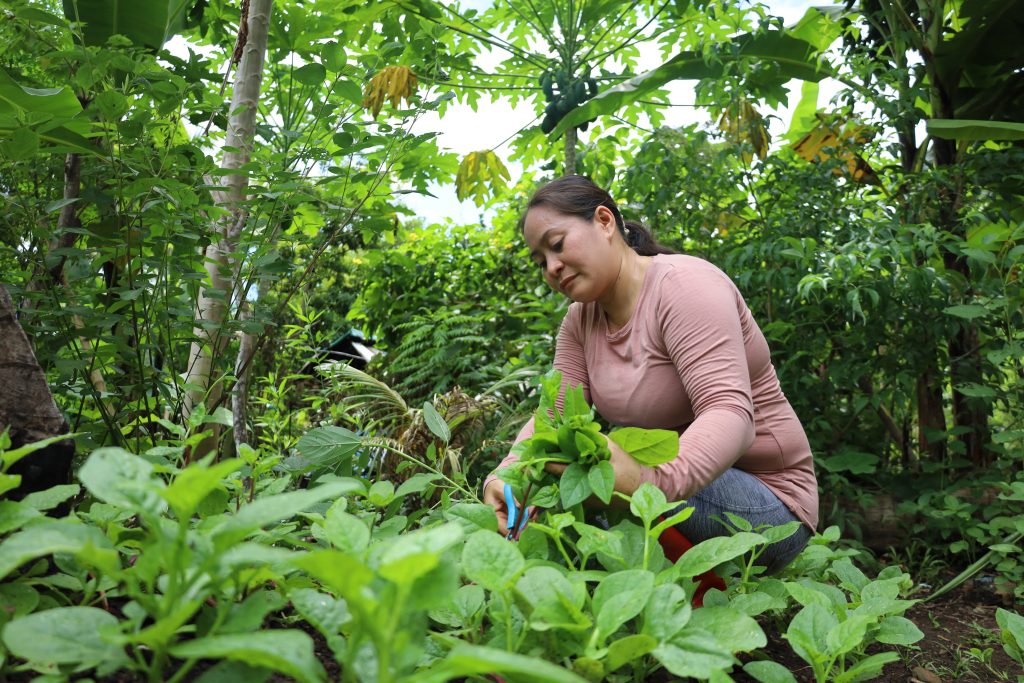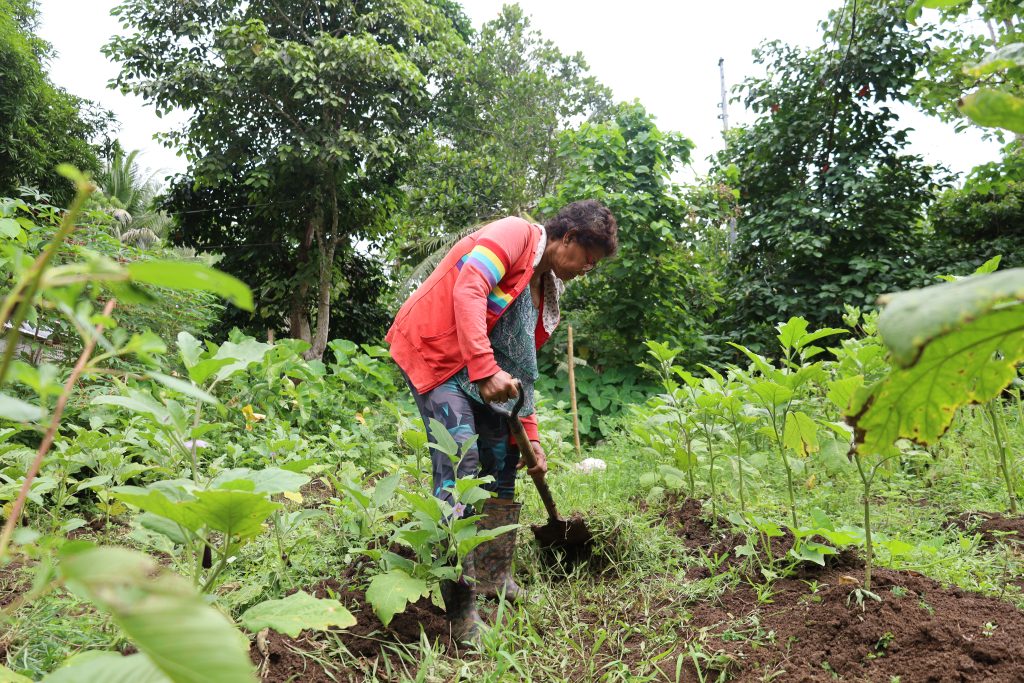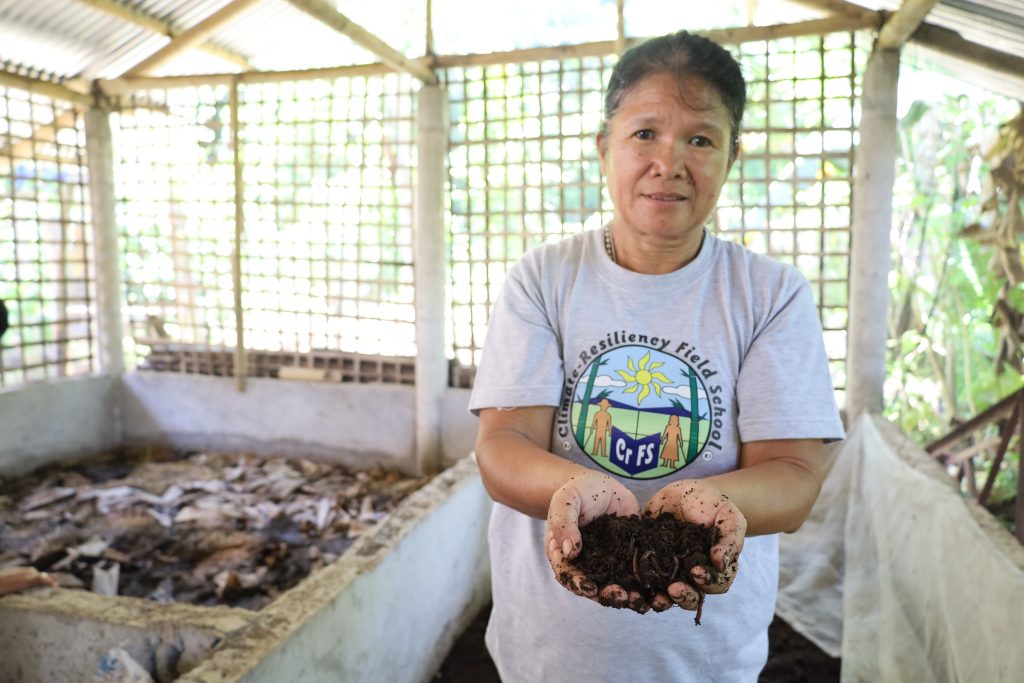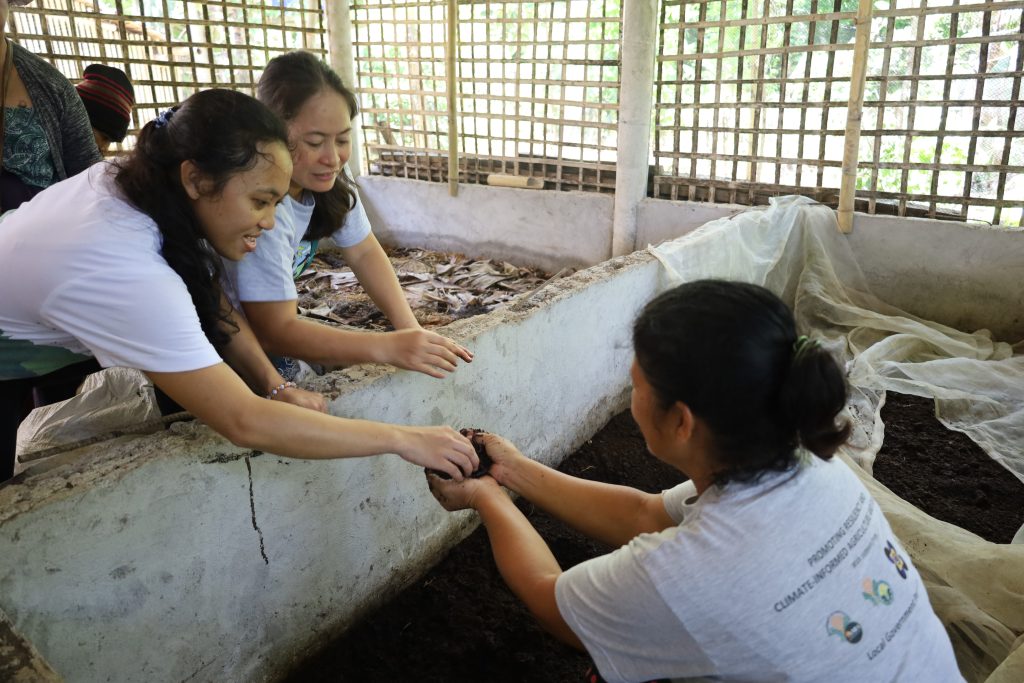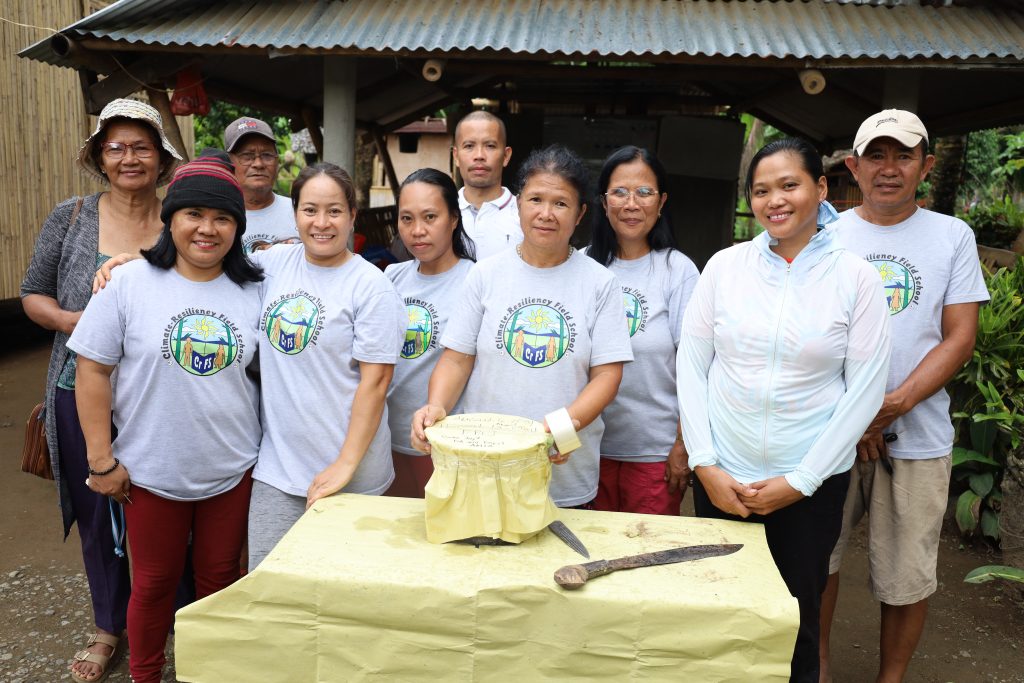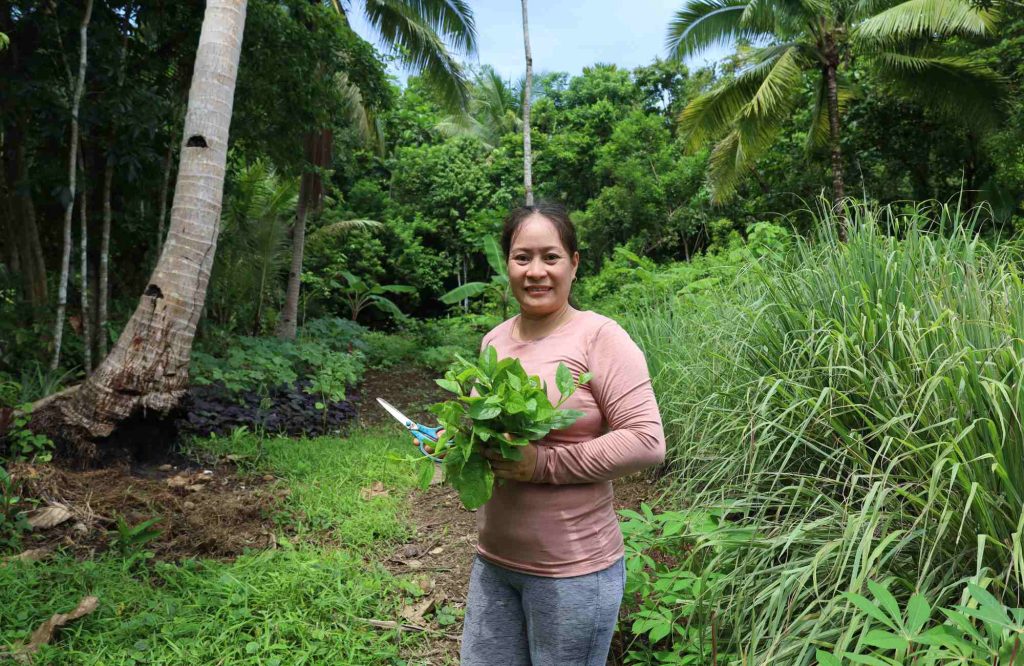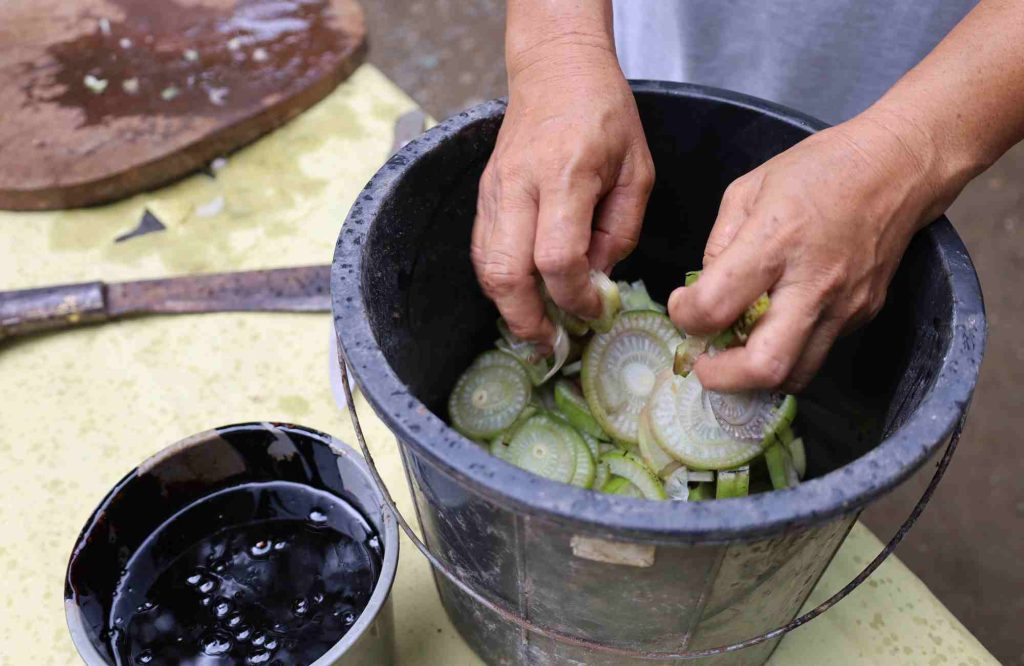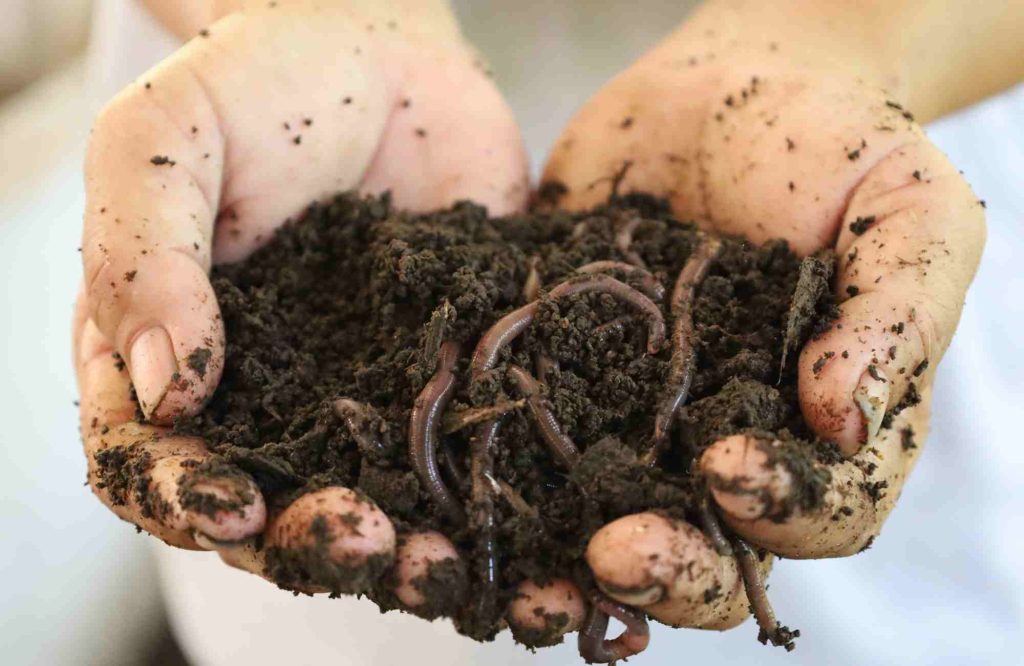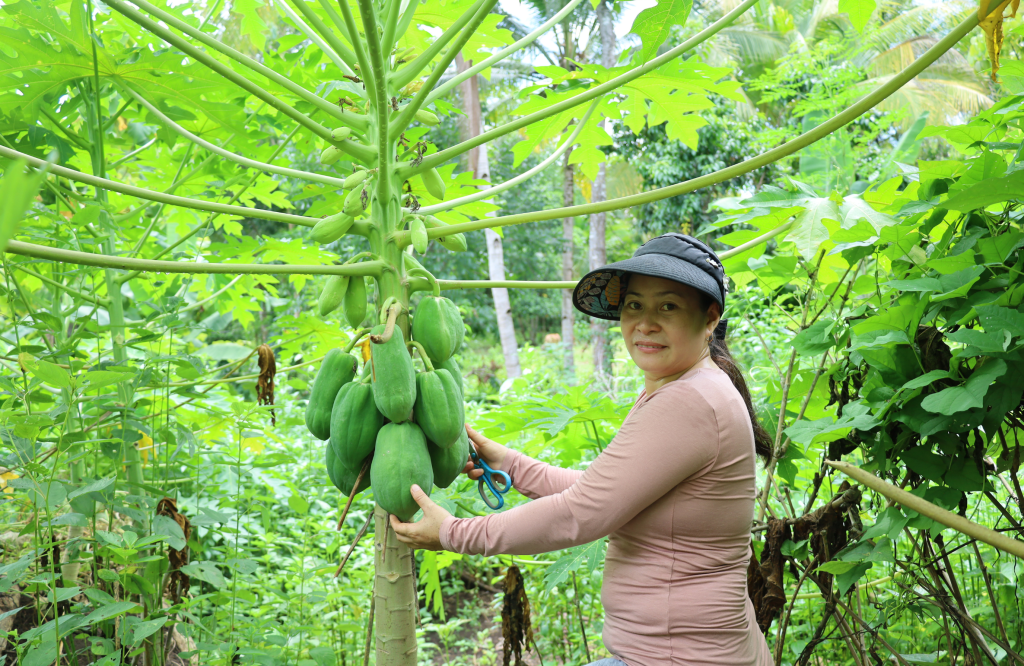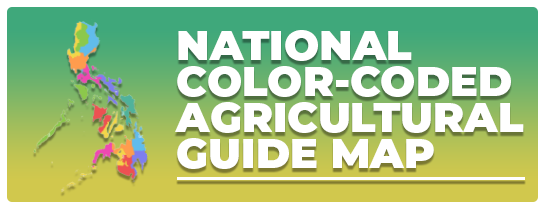Batan AMIA Village perseveres amidst climate threats
Posted by: RAFIS DA6 | Posted at: January 7, 2025
It is all for one, one for all! A success story of two barangays bound in unity in one association and how they persevere amidst climate threats in their village.
We, Filipinos, place a strong value on unity because we believe that no man is an island. We have this strong belief that is part of our culture that, together, we are stronger. All for one, one for all means every individual acts for the benefit of the group, and the group should act for the benefit of every individual, but the question is: will they still thrive in unity even if their kinship is shaken? In an all for one, one for all situation, does united we stand really work when climate challenges their native land?
In the coastal municipality of Batan, Aklan, farmers live in Brgy. Palay and Ambolong used to mainly plant rice separately on their lands. They only farmed on their own; one reason for this is that farmers were far away from each other, and they didn’t know what crops the other farmers were planting on their own farms. There were associations established before to unite farmers, but mainly for rice only, prompting division and disunion among farmers.
The Department of Agriculture Western Visayas Adaptation and Mitigation Initiative in Agriculture (DA-WV AMIA) provided training in Batan, Aklan, and this is where farmers from the 2 barangays started to gather together and partake in the training. DA-AMIA conducted training for them, highlighting the use of AMIA technologies like how to use fertilizers through vermicomposting, how to plant their crops using the right methods like using a weather board in farming, providing information on constructing and managing a natural pig farming system like Babuyang Walang Amoy, and demonstrating how rainwater harvesters work in watering crop.
With their dedication and passion for farming, the farmers in Brgy. Palay and Ambolong come together to create a union, infusing 2 barangays in 1 association. On June 22, 2021, after they graduated from their training in DA-AMIA, the Batan AMIA Village Farmers Association (BAVFA) was formed. They were genuinely eager to learn, and that’s what pushed them to organize an association.
BAVFA started first by making Bokashi, a fermented organic matter, but because of its meticulous and inconvenient process, they shifted to adapting Babuyang Walang Amoy technology. The DA-AMIA provided the association with 28 heads, all for breeding purposes, with 2 heads per beneficiary. The Babuyang Walang Amoy was a fresh start for them, but the outbreak of African swine fever (ASF) caused a big impact on their livelihood when out of the 28 pigs that died, only 1 survived, but later on, it was sold because it could not reproduce anymore.
To cut the Gordian knot, BAVFA members decided to move on and started another AMIA technology to adapt in their village; hence, organic vegetable production was carried out. DA-AMIA allocates garden tools and input support like spades, spading forks, pails, seeds, fertilizer, and concoctions. They planted corn, chili, eggplant, string beans, cucumber, bitter gourd, white radish, spinach, and other bahay kubo varieties of low-land vegetables that they applied with organic fertilizer. Every Wednesday, they have KADIWA, wherein they bring the vegetables that they harvested and sell their produce.
“Dating housewife lang pero ngayon negosyante na ng dahil sa pagtatanim,” said BAVFA Secretary Angelyn B. Selorio.
What’s good about BAVFA is that each of their members makes sure that they plant different varieties of vegetables to avoid competition, and they have their own techniques on how they could earn money. With the profit they earn in KADIWA, they also share 10% of their income with the association, and this is where they get their funds. They also help each other market their products, and through this, they have learned how to communicate with people when selling their crops.
The BAVFA’s organic vegetable production was climbing a steep hill; it was hard for them to do it manually as they don’t have modern technologies. “Magtanim ay ‘di biro, maghapong nakayuko,” they can really relate to this song because it was tiring and this requires hard work and perseverance. With the help of DA-AMIA’s 20 units of rainwater harvesters and the complete accessories that they provide to BAVFA, it made their work easier. Before, they had to fetch water, but now they have a rainwater harvester to water their vegetables. Their lives have really changed because of this, and their income has also improved and even doubled.
El Niño came and struck a devastating blow to their crops, leaving their association in a state of despair. They experienced drought, which made organic vegetable production difficult, and some of their plants also died because of the dry spell. They assess the climate threats of El Niño with a silver lining as they open a new opportunity for their association to recover from their losses. They cleaned their farming area during the strike of El Niño, stored animal manure, and focused on vermicomposting and concoctions.
In vermicomposting, the harvesting time is a bit long, about 3–4 months if done manually. They have 2 facilities: 1 with 8 vermi beds (1×3) with a storage room, and 1 with 2 vermi beds (2×4). They harvest 1 sack that weighs 330 kilos, which they sell for 10 pesos per kilo. There’s really a big difference in their lives now compared to before, and they really enjoy farming now because of the association while selling their products at the same time.
Every Friday, they work in their communal garden. For most of the members, this was their first time engaging in an association. Before, they had a total of 30 members, but now they have 36, although only 20 are active. The participation of some of the members has become a problem, and to address this issue, the President of BAVFA, Jonalyn O. Onayan, has taken action against members who are not active by making them pay 20 pesos for every session they don’t attend.
One of the biggest achievements that the members of BAVFA are proud of is that they never lose their momentum in participating in their association. Some of them have already left because they chose another path and moved to another province, but they still retain the technologies and tools that AMIA provided them.
One of the key lessons they learned is that there were many associations before that were established in Batan, but they are one of those associations that has continued to operate for more than 2 years. They continued to apply the knowledge they gained and now know how to handle and monitor their farming well. BAVFA’s goal is for their association to be truly successful and to continue to persevere amidst how many threats the climate will throw at them.
The DA-AMIA has so many plans for BAVFA; they want them to be Civil Society Organization (CSO) accredited so that they can get continuous support from the DA. DA-AMIA, being dedicated to building climate-resilient agri-fishery communities, livelihoods, and enterprises, wants BAVFA to be a climate-resilient village.
The journey of BAVFA from going the extra mile to move mountains shows how strong the power that unity holds. The pilgrimages were full of rough roads and towering boulders, but with unwavering perseverance and a deep sense of unity, they were able to withstand all the obstacles in their way. Their story is a testament to the fact to the fact that when people unite for a common cause, they don’t just cultivate fields; they plant a future where anything is possible.


